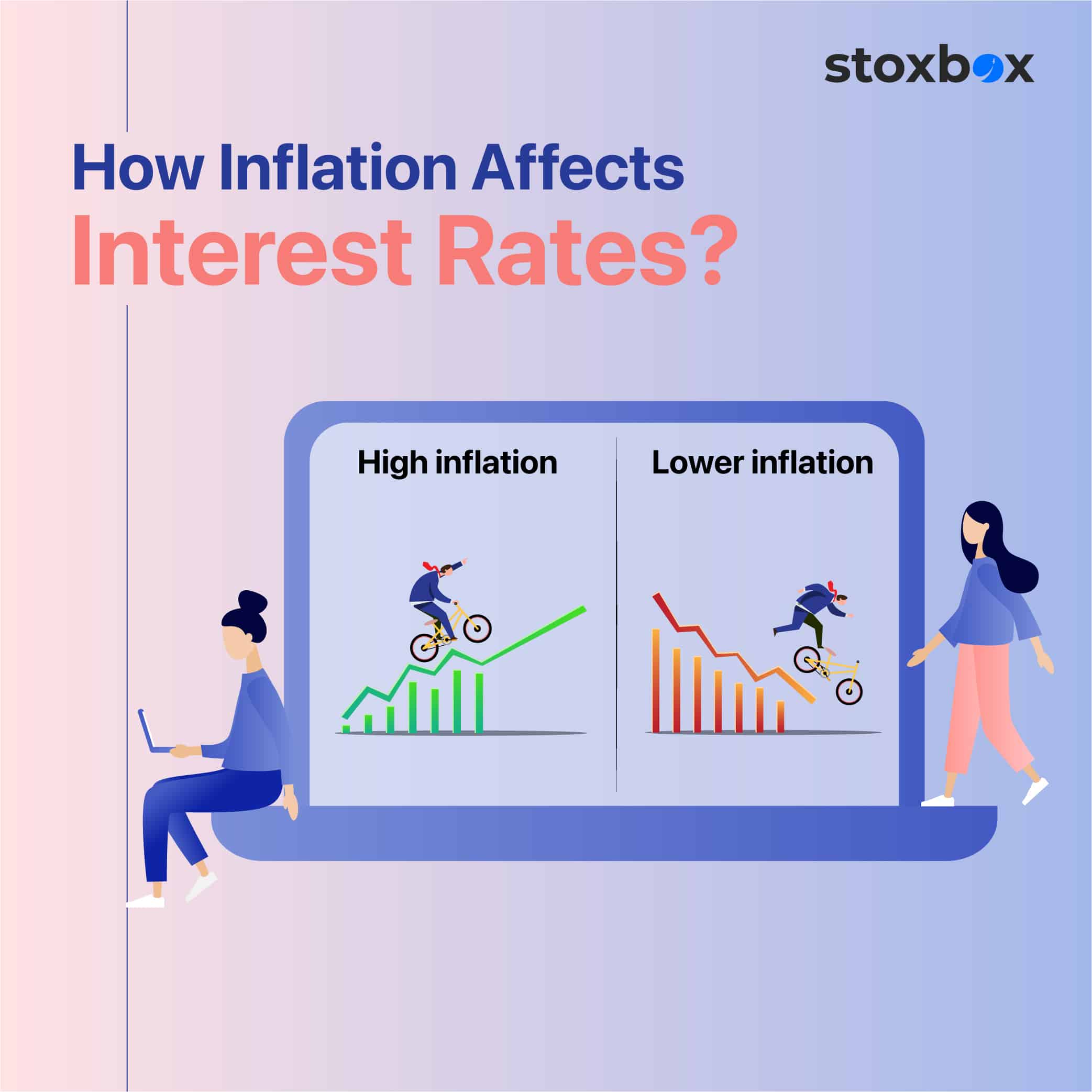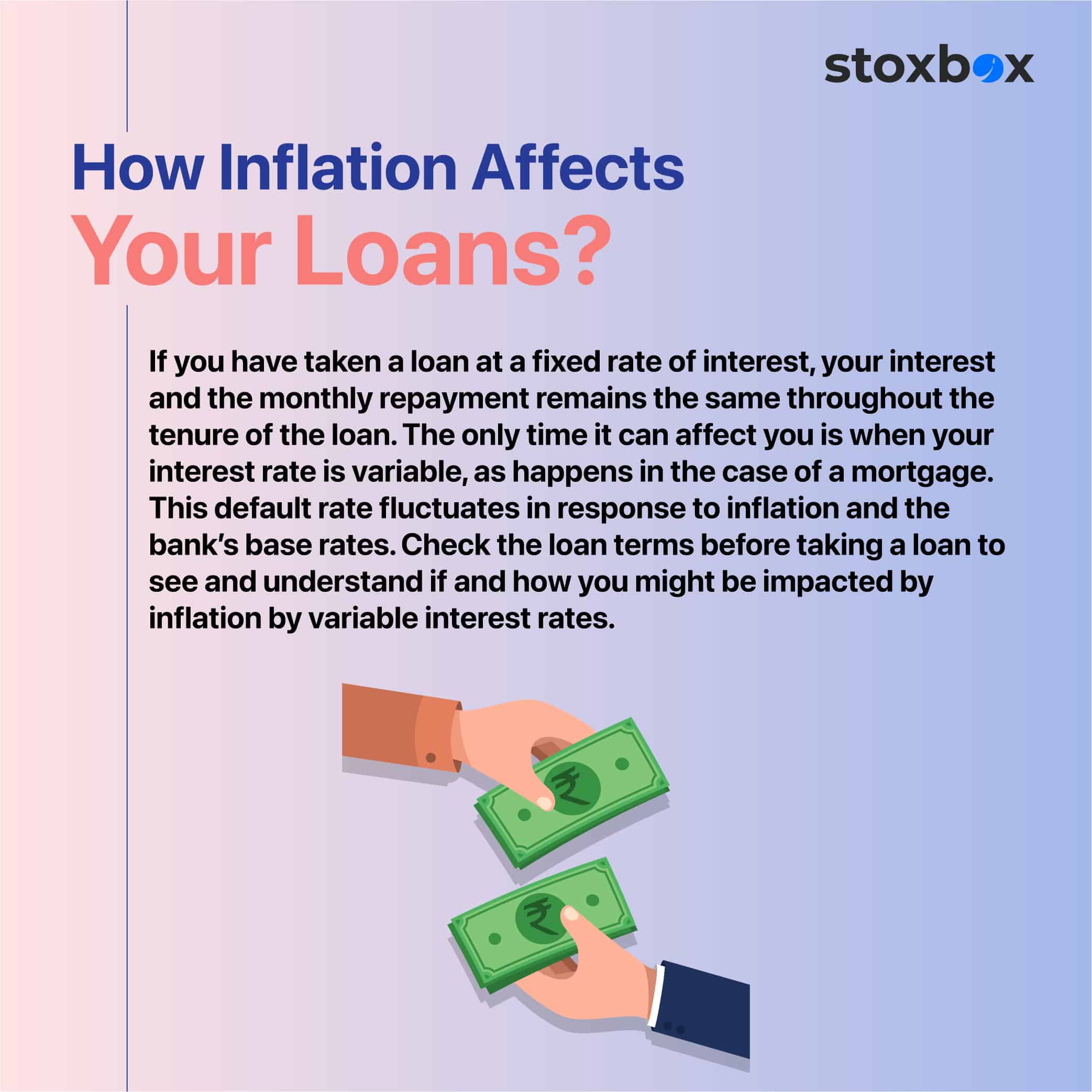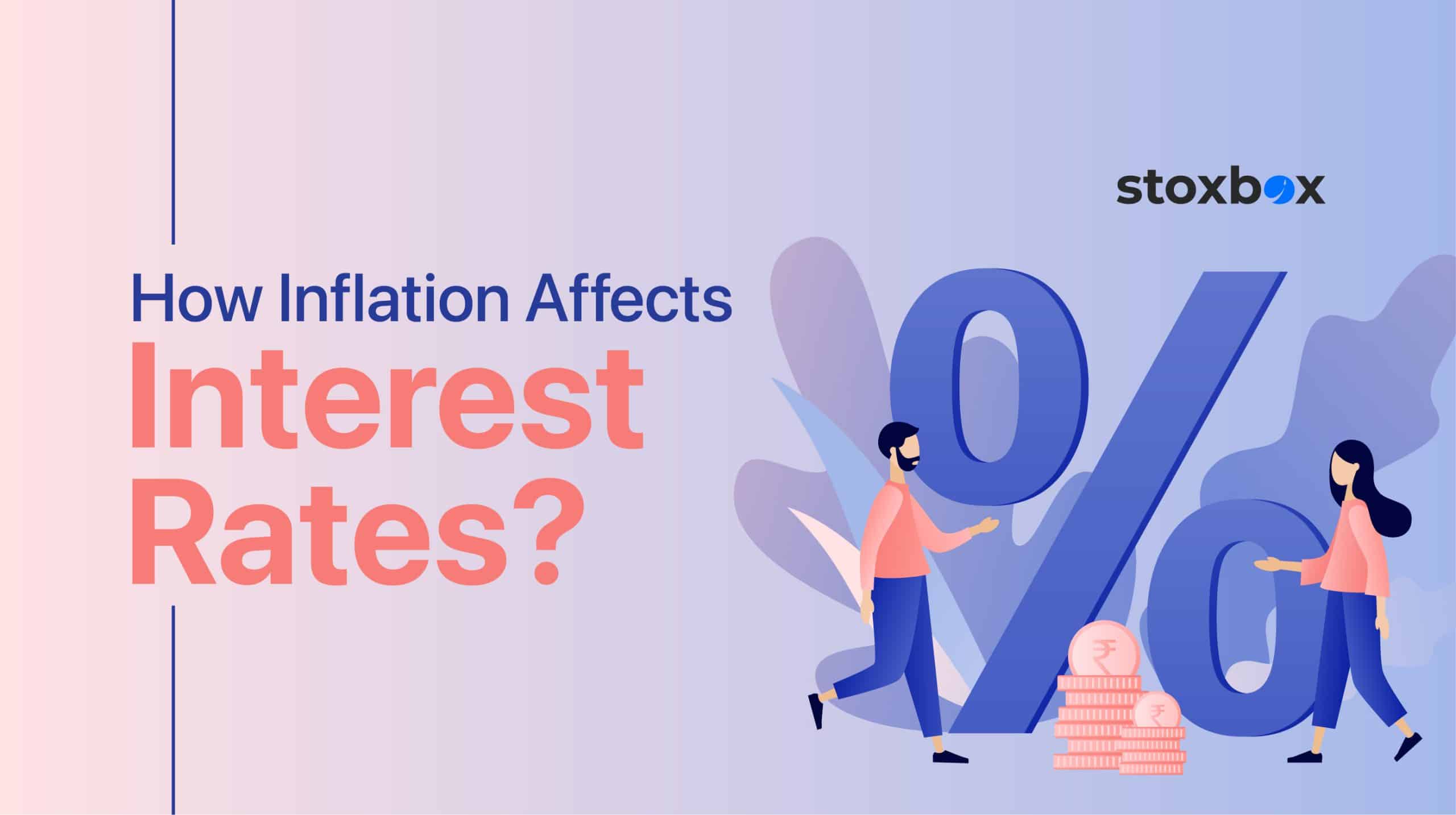A very important and crucial concept in macroeconomics, inflation and interest rates are often linked to each other. Some theorists talk of an inverse correlation, whereas others talk of a direct correlation. Or in layman terms, sometimes the rising inflation leads to rising interest rates, and sometimes the rising inflation leads to lower inflation rates or vice versa. However, the general tendency is to have an inverse relationship. When interest rates are light, the economy expands, and there is a rise in inflation. When interest rates are high, the economy slows, and there is a steady fall in inflation.
How Does Inflation Affect Interest Rates |
Inflation primarily happens when there is an increase in the price of everyday goods and services. The inflation rate refers to the prices at which the prices of goods and services rise. This means that if the inflation rates rise by 2% on average, then your spending on shopping will be 2% higher than that of the previous year.
How Does Inflation Affect Interest Rates |
Leveraging the interest rates is one of the key tools the Central Bank and policymakers have at their disposal to either boost or slow down the economy. The Monetary Policy Committee (MPC) in India is in charge of setting the benchmark interest rate. Interest rates are lowered to increase liquidity in the market, with the assumption that increased borrowing and investment would be beneficial to the economy.
Increasing inflation, in the long run, is beneficial. It indicates that an economy is expanding and offers a good incentive to save or invest money, so the capital that is not generating returns would lose value. However, if inflation becomes too high – especially if salaries do not rise on the same lines – goods and commodities can become costlier than ever. If this leads to hyperinflation, at the other end of the spectrum, it will end up rendering a currency absolutely useless. Hence, central banks often spend a lot of time trying to determine the correct rate of inflation.
How Inflation Affects Interest Rates?

While we have had a brief idea of what inflation is, the interest rate is the rate at which borrowing happens in an economy.
Maintaining a stable rate of inflation is an important and one of the key aspects of a central bank’s mandate, but it’s fair to assume it can be quite a difficult task. In a developing economy, a nominal rate of inflation is an indicator of a good and healthy economy. It means that people want to and are willing to spend money on goods and services rather than conserve or save money, which is beneficial to the economy. However, excessive inflation is harmful to an economy because it allows the value of a currency to depreciate and decreases the number of goods and services that can be bought for a fixed sum of money.
Now, let’s take a look at the effects of inflation on an economy.
- Lower inflation: In the case of low inflation, the central bank brings down the interest rate to incentivise spending and boost economic activity. Borrowing becomes more affordable as inflation and interest rates decline. As a result, borrowing will rise, as will the money supply. People would have more money to spend on goods and services, as keeping the money in any kind of savings instrument would be a loss due to low interest rates. As a result, more money comes into the market, thus boosting growth and ultimately increasing inflation.
- High inflation: To control high inflation, the interest rate is often lowered. With the rise in interest rates, the cost of borrowing rises, thereby making borrowing costlier. Hence, the amount of borrowing will decrease, thereby leading to a fall in the amount of money in circulation in the economy. People would have less money to spend on goods and services if the money supply falls. As a result, they will purchase fewer products and services. This, in particular, would result in a decrease in demand for goods and services. With the supply of goods and services remaining unchanged and the demand for goods and services falling, the price of goods and services will automatically decline.
How Inflation Affects Your Loans?

If you have taken a loan at a fixed rate of interest, your interest and the monthly repayment remains the same throughout the tenure of the loan. The only time it can affect you is when your interest rate is variable, as happens in the case of a mortgage. This default rate fluctuates in response to inflation and the bank’s base rates. Check the loan terms before taking a loan to see and understand if and how you might be impacted by inflation by variable interest rates.
The Bottom Line
Though inflation is a key factor in determining interest rates, what we need to keep in mind is that it’s not the only factor. There are several other factors that play a role when determining the interest rate.
Knowing how central banks use interest rates to influence inflation, it’s quite simple and easy to understand how inflation can influence interest rate expectations. When inflation rises higher than a central bank wishes, it can attempt to curb it by raising interest rates. If inflation falls below the target rate, interest rates will be reduced accordingly.
Taking inflation rates as the primary driver of interest rate movements, on the other hand, can be a risky move. Each central bank has its own inflation strategy, which changes and evolves over time depending on the need. In addition, they may consider a variety of other economic considerations and factors, such as the cost of production and raw materials, before determining how to proceed.
We hope this article helps and gives you a clear view of how inflation affects interest rates. Head over to BP Wealth to read more such pieces! Check out StoxBox to know how to build a profitable, diversified short-term and long-term portfolio.
You might also Like.
No posts found!
